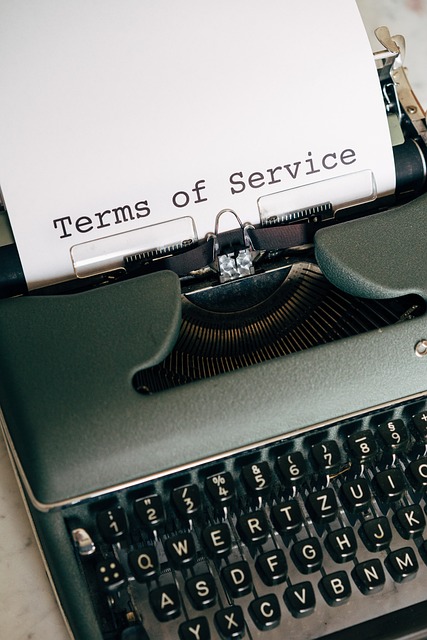- Understanding Corporate DUI Policies and Their Impact
- Benefits of Group Support for Alcohol Recovery
- Creating a Safe Space: Designing Effective Recovery Meetings
- Incorporating Corporate DUI Awareness into Employee Support Programs
- Measuring Success: Evaluating the Effectiveness of Recovery Groups
Understanding Corporate DUI Policies and Their Impact

Many companies now recognize the importance of addressing drunk driving within their workplaces, leading to a rise in Corporate DUI Awareness Workshops. These initiatives aim to educate employees about the severe consequences of operating under the influence and promote responsible behavior. By implementing such programs, organizations can foster a culture of safety and accountability.
Drunk driving policies are no longer just legal requirements but essential tools for companies to protect their employees, customers, and public safety. These workshops often cover topics like the impact of alcohol on judgment, legal repercussions, and company-specific expectations. They provide a platform for open discussions, ensuring that everyone understands the company’s zero-tolerance stance on DUI, which can significantly reduce risks and promote a healthier work environment.
Benefits of Group Support for Alcohol Recovery

Support groups offer a powerful tool for individuals navigating alcohol recovery, providing numerous benefits that extend far beyond individual therapy. In these safe and supportive environments, members foster a sense of community, understanding, and accountability. By sharing experiences, struggles, and victories with peers who face similar challenges, participants gain valuable insights and build lasting connections. This collective support network can significantly enhance motivation and resilience throughout the recovery journey.
Moreover, group settings facilitate open dialogue and education, addressing various aspects of alcohol dependence and its impact. Corporate DUI awareness workshops, for instance, can be tailored to these groups, offering essential information on risk factors, legal implications, and strategies for managing triggers. Such interactive sessions promote a deeper understanding of the issues, empowering individuals to make informed decisions and maintain sobriety in a supportive network.
Creating a Safe Space: Designing Effective Recovery Meetings

Creating a safe and supportive environment is paramount for effective recovery meetings. This means designing spaces where individuals feel comfortable sharing their experiences, challenges, and victories without fear of judgment or repercussions. Incorporating principles from corporate DUI awareness workshops can be beneficial in this regard, fostering an atmosphere of openness and accountability. Facilitators should encourage active participation through structured yet flexible agendas that allow for organic discussions.
The design of these meetings should prioritize comfort, accessibility, and confidentiality to ensure members feel secure. This could involve using private or quiet spaces, ensuring anonymity when necessary, and promoting a sense of community among participants. By creating such a safe haven, support groups can enhance the recovery process, enabling individuals to build resilience, gain insights from peers, and take concrete steps towards lasting change—all while navigating their journey towards sobriety together.
Incorporating Corporate DUI Awareness into Employee Support Programs

Incorporating Corporate DUI (Drunk Driving Under Influence) Awareness into employee support programs is a proactive step towards fostering a safe and responsible work environment. Organizations can benefit from hosting Corporate DUI Awareness Workshops to educate staff about the risks and consequences of impaired driving. These workshops can cover topics such as legal implications, personal stories of impact, and strategies for making responsible choices. By raising awareness, companies can encourage employees to prioritize safety and support each other in overcoming any challenges related to substance abuse.
Moreover, integrating these programs into existing employee assistance plans (EAPs) ensures accessibility and encourages participation. EAPs often already provide resources for mental health and personal issues; adding Corporate DUI Awareness initiatives creates a holistic approach to well-being. This combined effort can help identify individuals struggling with addiction early on and offer necessary support, ultimately promoting a healthier and more productive workplace culture.
Measuring Success: Evaluating the Effectiveness of Recovery Groups

Measuring success in recovery groups is a multifaceted process, especially for those facilitating support networks like Corporate DUI Awareness Workshops. While qualitative feedback from members can provide valuable insights, quantitative metrics offer a clearer picture of the group’s overall effectiveness. Regular attendance and active participation are basic indicators; consistent growth in these areas suggests a thriving and engaging environment.
The impact of recovery groups extends beyond mere presence and engagement. Metrics like reduced relapse rates, improved mental health scores, and positive feedback from participants regarding their coping mechanisms and overall well-being demonstrate the tangible benefits of these gatherings. Incorporating regular evaluations and feedback sessions can help fine-tune the group’s approach, ensuring it aligns with members’ evolving needs and promotes sustained recovery.
Support groups, particularly those focused on alcohol recovery, play a pivotal role in an individual’s journey towards sobriety. By fostering a sense of community and understanding within the corporate setting, these groups can significantly enhance the effectiveness of Corporate DUI Awareness Workshops. Through open discussions, shared experiences, and peer support, employees can navigate their recovery paths more successfully. Incorporating structured meeting formats that prioritize safety and confidentiality further solidifies the benefits of group support for alcohol recovery, ultimately contributing to improved workplace safety and employee well-being.






